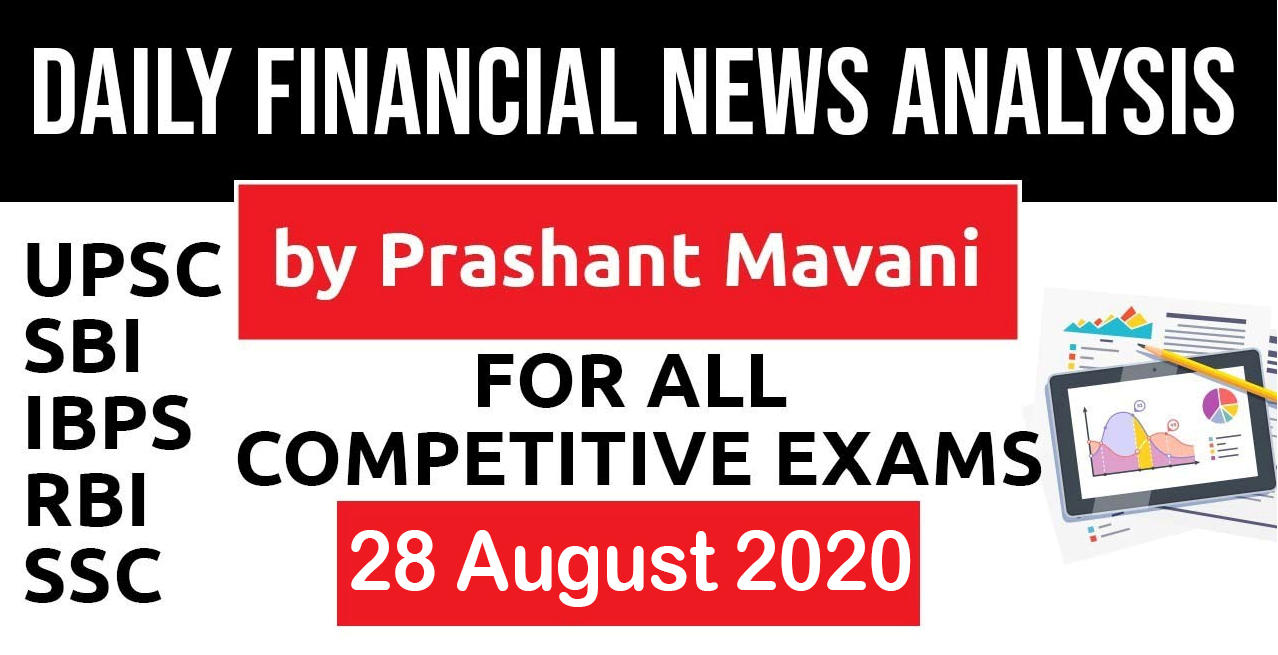Table of Contents

Walmart on Tik Tok
- TikTok has been given 90 days to sell its US arm to an American firm or face a ban in the country.
- The US retail giant Walmart has said it will team up with Microsoft to make a bid for the US operations of TikTok.
- Walmart: a deal with the Chinese video-sharing app would help it expand its operations.
- Donald Trump has alleged it shares its user data with Beijing – claims it denies.
- TikTok’s US operations could fetch as much as $30bn (£22bn) if a deal is reached.
- Trump administration: the data the company collects from its 800 million users – 100 million of whom are reported to be in the US – is at risk of exploitation by the Chinese government.
- India’s government has also banned TikTok.
- Beijing has denied such claims.
GST Shortfall
- The Centre offered two borrowing options to states to make up for the shortfall in the goods and services tax (GST) compensation cess fund.
- States can either borrow the full compensation deficit of ₹2.35 lakh crore, which includes revenue loss due to transition to GST and also the Covid-led slowdown, from the markets, facilitated by the Centre and the RBI.
- Or the shortfall that’s purely due to GST implementation of ₹97,000 crore via a special window to directly raise finances from the Reserve Bank of India (RBI).
- It was, however, not clear if both options will be available or the GST Council will go with just the one acceptable to most states.
- The states will revert on these plans in seven working days to the council, which will meet again next month.
- “If each state rushes to the market, it will harden bond yields, so we thought it sensible to approach the Reserve Bank of India to help us and facilitate the process, whereby all states could possibly get loan at the same rate,” said union finance minister Nirmala Sitharaman.
GST shortfall classification not acceptable: Kerala FM
- Kerala Finance Minister TM Thomas Isaac said on Thursday that the state does not accept the bifurcation of shortfall in GST compensation as two components—one regular shortfall and the second one due to Covid — and it is against the law.
- Kerala will hold consultation with non BJP-ruled states on the two options suggested by the Union government to mobilise funds for GST compensation payment.
- Isaac argued in the council that the Centre should borrow the entire sum and distribute it among the states, as the Centre can mobilise funds at lesser interest than the states.
- States have been demanding compensation from the government to meet the shortfall in revenue caused by lockdown to curb spread of Covid.
Get real on GST
- Both Centre and States have a valid point; at the same time, both are being stubborn and economical with the truth.
- The state governments are right when they say that the Constitutional amendment had clearly said the Centre would guarantee the states a 14% annual increase in revenues.
- Amit Mitra: the Centre has a constitutional and moral obligation to make good the amount.
- Central government: the constitutional position is that this money has to be paid out of the GST compensation cess; to the extent, there is no money in the fund, there cannot be any compensation, and there is no question of the Centre dipping into its own funds to make the payment.
- With GDP growth slowing dramatically, it makes sense for the states to agree to a lower growth number since, had GST not been implemented, their revenues would not have grown by 14% a year.
- But, and here’s the problem, at a time when it is important to try and stimulate the contracting economy, even if the states were to agree to raise rates on zero-duty goods or on those with low rates, this would hurt consumption.
- The most important lesson the Centre needs to keep in mind is that, if states fall short of funds, they will spend less and this will, in turn, hurt overall economic growth; that will ensure that central revenues fall even more.
- While the immediate pandemic-driven crisis may get resolved with the central proposal to speak to RBI about raising borrowing limits for states—and to help them borrow at near-GSec rates—the Centre needs to examine the possibility of borrowing more on its own, if need be, to compensate states provided they are more reasonable and accept a revenue growth that is substantially below 14%.
- The 101st Constitution Amendment, which legislated GST into being, said, ‘Parliament shall, by law… provide for compensation to the states for loss of revenue arising on account of implementation of the goods and services tax for a period of five years.’
- When the Centre decided to dip into the green cess on coal to compensate the states for GST shortfall, it accepted the principle that the compensation cess is not the only source of funding the shortfall.
- The law that was passed for the purpose introduced a cess as a source of revenue for such compensation.
- But nowhere does the law say that compensation would be paid only from the proceeds of the cess.
- The most buoyant taxes are with the Centre, which also has greater leeway to borrow, while the bulk of the spending obligation is on the states, particularly on social sectors.
- Both for the sake of better federal ties and for the sake of better economic outcomes, the Centre should borrow the amount of GST shortfall and compensate the states.
Download Free PDF























 WhatsApp
WhatsApp